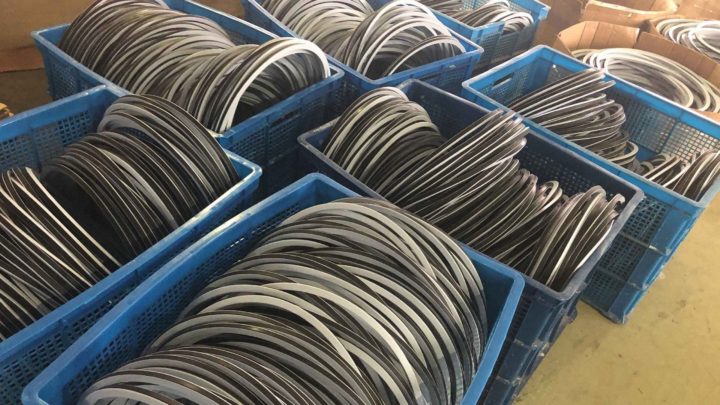
The European Chemicals Agency (ECHA) is considering a REACH proposal to limit risks to the environment and human health that might result from the manufacture and use of perfluoroalkyl and polyfluoroalkyl substances (PFAS).
PFAS are a class of about 4,700 synthetic chemicals that are widely used in everyday products. But of concern to bulk logistics stakeholders is one particular product in this class; polytetrafluoroethylene (PTFE).
PTFE is a thermoplastic polymer used in the manufacture of vital safety components for tank containers and road tankers, for example, in O-rings, seals and gaskets. PTFE has steadily replaced asbestos thanks to its significantly tighter seal and chemical resistance.
The polymer has one of the lowest coefficients of friction of any known solid material, which makes it an excellent choice in applications that require anti-stick properties or those that are sensitive to wear. Teflon coating for cookware is probably its best known application. PTFE also shows a high resistance to temperature, chemicals and even radiance, as well as having a high impact strength.
Forever chemicals
However, PFAS have earned the moniker ‘forever chemicals’ because they do not break down, instead accumulating in the environment and in human bodies.
All PFAS are highly persistent in the environment. Consequently, as long as PFAS continue to be released to the environment, humans and other species will be exposed to ever greater concentrations. Even if all releases of PFAS ceased tomorrow, they would continue to be present in the environment for generations to come.
Their release and mobility in water and air causes contamination to groundwater and drinking water. Certain PFAS are known to accumulate in living things and cause toxic effects. Certain products are toxic for reproduction and can harm the development of foetuses. Several PFAS are believed to be carcinogenic in humans, while some are also suspected of interfering with the human endocrine system.
A group of European countries – Germany, Netherlands, Norway, Sweden, and Denmark – originally proposed a joint REACH restriction to limit the manufacture and use of PFAS, and this is now in its consultation process.
ITCO said a ban on the use of PTFE and other similar materials would have “serious consequences for the safe transport of dangerous goods”. The material’s superior properties, in terms of seal and chemical resistance, mean that no equivalent alternative currently exists.
Concerned parties are being strongly advised to respond to the ECHA consultation that will close probably in July 2022. Environmentally sound recycling is also to be encouraged.
